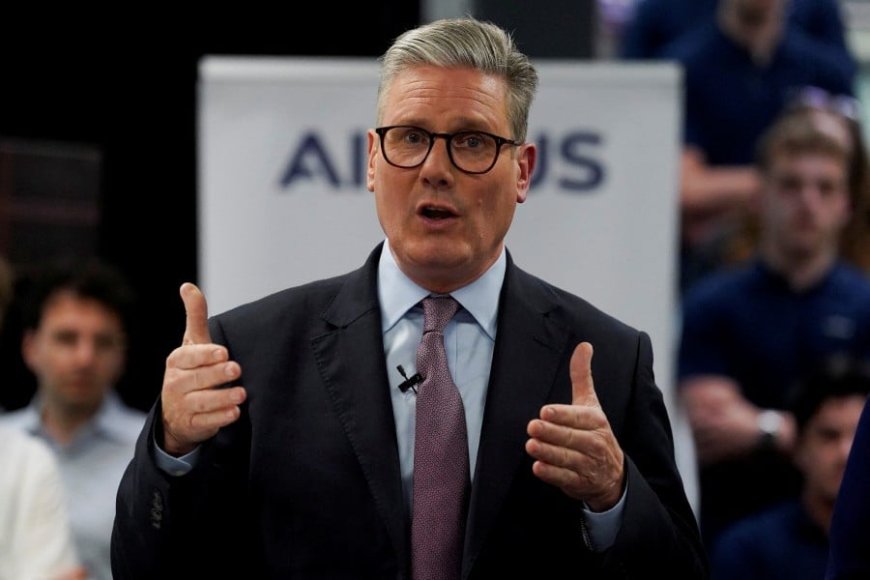Britain’s Keir Starmer has done the hard part. Now comes the really hard part

CNN
Keir Starmer’s historic victory in Britain’s general election Thursday hands him a level of power that was unthinkable for a Labour leader just five years ago.
To win a working parliamentary majority of over 170 seats just four-and-a-half years after his predecessor, Jeremy Corbyn, led the party to its worst loss in a generation is nothing short of remarkable.
Starmer was arguably elected on a mandate of change rather than on a personal endorsement. It is no secret that a large number of voters were not voting exactly for Starmer himself, but to get rid of a Conservative Party that had been in power for 14 years and led the country through some of its most chaotic days in peacetime.
The change the country has voted for could be interpreted in many ways, as there is a lot wrong with the UK right now. Waiting lists for doctors’ appointments are in the millions. The cost-of-living crisis that has plagued Europe left many in Britain having to make unthinkable decisions between heating their homes or eating. Immigration, particularly irregular migration, has become a major issue for voters on the right.
There are many more examples but, bluntly, there has been a sense for some time that the UK simply doesn’t function well as a country. If the Brexit vote of 2016 told the British political establishment anything, it’s that large parts of the nation were fed up with the status quo.
If nothing else, Starmer has to make the people of Britain feel that they are living better lives with his time in office. But he must do so with some challenges, despite the size of his majority.
It is no secret that he doesn’t have a huge amount of public money to spend. He has loosely pledged not to raise taxes. Convincing the public that the Labour Party could be trusted with public finances was a big part of his electoral campaign.
This combination of limited public money and a promise to balance the books runs into another of the key challenges facing Starmer: those in his own party who believe he should be radical.
Of course, Labour members and activists are pleased to see the back of the Conservative Party after 14 long years in power. But some, especially on the left of the party, don’t want to see a thumping majority squandered on moderate policy that returns right-wingers to power in five years.
Their concerns may not be completely unfounded. While the story of this election is Starmer’s landslide, the anti-Conservative vote split in a few different directions. Most notably, the hard-right Reform UK, led by friend of Donald Trump Nigel Farage, secured 14% of the national vote.
Reform took a lot of votes from the Conservatives through vicious attacks on its record in government. It’s extremely likely that with Starmer now in power, Farage and his acolytes will turn their attention to tearing chunks out of the Labour Party. If Starmer decides to stick to his moderate guns, it isn’t hard to see how Reform starts labeling this Labour government as virtually the same as the Conservatives, using populist rhetoric that clearly appeals to many in Britain.
On the other hand, Starmer cannot afford to spook the center-ground majority that just put him in Downing Street, having believed and trusted his message that he would be stable and responsible.
Delivering meaningful change while trying to stand still is not an easy task by any stretch of the imagination. It is likely that Starmer will soon have to make some difficult decisions that will deviate in some way from his pledges made while running for office. This is normal, and most governments have to make some compromises while in power. But it will upset some of his own base.
Fortunately for Starmer, he has quite a lot of political capital to spend. What he must now decide is who he spends it on.
























































